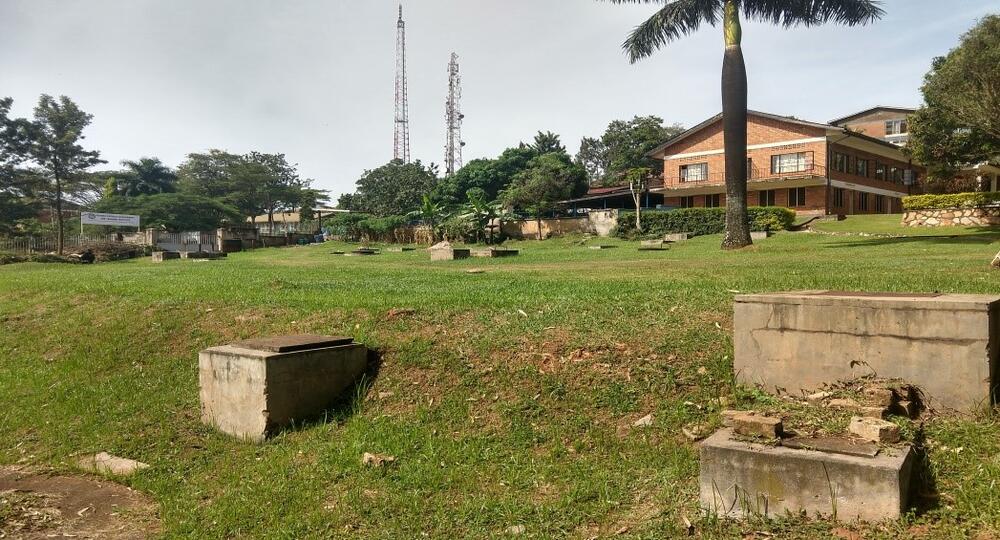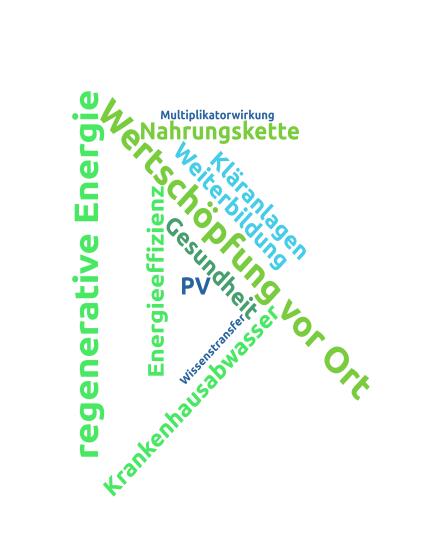Development and testing of a solar-powered membrane bioreactor plant for the decentralized treatment and reuse of hospital wastewater using the example of Lubaga Hospital in Kampala/Uganda
International project funding
Subject and goals of the project
Inadequate treatment of hospital wastewater also leads to increased contamination of water bodies with pharmaceutical residues in many West African countries. These exhibit a high degree of persistence; they usually cannot be completely degraded in municipal wastewater treatment plants, if they are sent for central treatment at all. Wastewater is often used for agricultural irrigation in Uganda's capital Kampala. As a result, pharmaceutical residues are now also found in the food chain. Treating wastewater not only relieves water bodies, but also has a positive effect on the health of the population. The safe use of treated wastewater also conserves freshwater resources. The Institute for Applied Research (IAF) at Karlsruhe University of Applied Sciences (HKA) sees a solution for this in the installation of membrane bioreactors (MBR) with activated carbon treatment in the hospitals' in-house wastewater treatment plants – if provided. A photovoltaic system is also to be installed to supply power to the hospital wastewater treatment plant.
There are 155 public and private hospitals in Uganda. In order to achieve a high multiplier effect, the system will be designed to be cost-effective and robust. To this end, the components are to be sourced as far as possible from the Ugandan market ("local value creation"). Furthermore, a small water analysis laboratory on site and training of the staff are planned to ensure the long-term operation of the plant.
Special aspects of the project
The project uses a proven approach for cross-border, international technical projects. First, the pilot plant will be set up at HKA in Karlsruhe. Its functionality will be determined in several preliminary tests. In parallel, wastewater analyses will be carried out in representative hospitals in Uganda and a concept will be developed for the additional regenerative energy supply of the MBR in the Lubaga hospital. Subsequently, the pilot plant will be transported from Karlsruhe to Uganda, where it will be put into operation in a hospital in Kampala. A sustainable treatment of the hospital wastewater will also be carried out for reuse purposes of the treated water. Furthermore, the generation of an economic model with profitability calculations, socio-economic analyses, education/training/training of the local staff as well as the dissemination of the project results are carried out.
The model project can reduce health hazards to people in Kampala and exemplary in the region caused by wastewater contaminated with pharmaceutical residues. The model demonstration of the solution in the hospital in Uganda should also give an impulse to transfer the results to other countries in East Africa (Kenya, Tanzania).
Funding subject: Efficient use of resources thanks to innovative manufacturing processes, materials and surface technologies
Cooperation partners:
- • Karlsruhe University of Applied Sciences (HKA), Institute for Applied Research (IAF)
- Centre for Research in Energy and Energy Conservation (CREEC) an der Makerere University (MAK), Kampala
- Equator Solar Systems Ltd., Kampala
Associated partners:
- Lubaga-Hospital in Kampala
- Kampala Capital City Authority (hospital supervision)
Location: Uganda (East African land-locked country), capital city Kampala
Funding period: October 2020 to April 2022
Project costs: Total volume: 135 250 Euro, DBU funding: 125 000 Euro
DBU-AZ: 35572
Note: Translation of the German version with DeepL
Last updated: 15.11.2021



